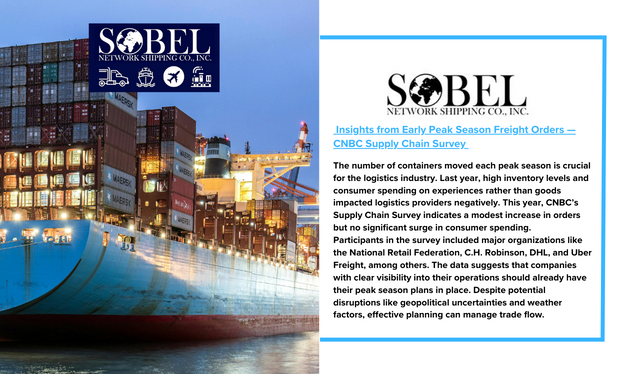The number of containers moved each peak season is crucial for the logistics industry. Last year, high inventory levels and consumer spending on experiences rather than goods impacted logistics providers negatively. This year, CNBC’s Supply Chain Survey indicates a modest increase in orders but no significant surge in consumer spending.
Participants in the survey included major organizations like the National Retail Federation, C.H. Robinson, DHL, and Uber Freight, among others. The data suggests that companies with clear visibility into their operations should already have their peak season plans in place. Despite potential disruptions like geopolitical uncertainties and weather factors, effective planning can manage trade flow.
D’Andrae Larry from Uber Freight emphasizes the importance of proactive strategies for supply chain optimization and cost savings. Similarly, Noah Hoffman from C.H. Robinson notes that the industry faces an “inflection point” with reduced consumer discretionary spending, leading retailers to be cautious with their holiday orders.
Concerns about a possible strike by the International Longshoremen’s Association (ILA) at East Coast ports have subsided, reducing the urgency for early orders. This year’s peak season is expected to align with the usual July-August timeline, with some logistics managers shifting trade back to the West Coast.
Rail transportation is poised to handle a significant share of diverted freight, offering a cost-effective alternative for cross-country shipments. Companies like ITS Logistics anticipate a traditional West Coast peak season, albeit slightly earlier. Sustainability in logistics will depend on efficiency and strong communication among stakeholders.
Overall, the winners and losers of the holiday season will be determined by their ability to manage trade efficiently and maintain strong logistical relationships.


